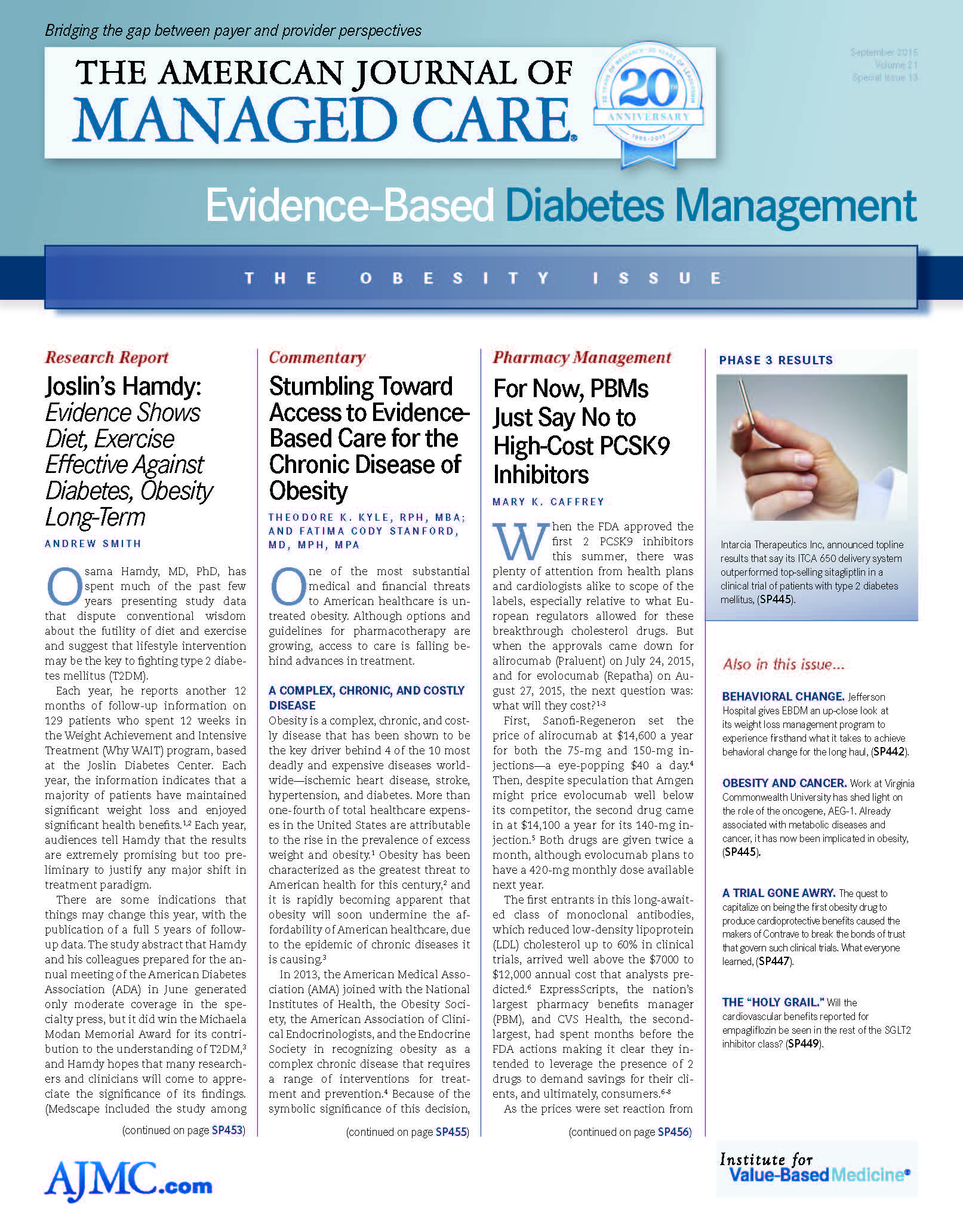- Center on Health Equity & Access
- Clinical
- Health Care Cost
- Health Care Delivery
- Insurance
- Policy
- Technology
- Value-Based Care
Non-Surgical Balloon Device Approved to Treat Obesity
Patients being treated for obesity gained a new, nonsurgical treatment option on July 28, 2015, when the FDA approved the ReShape Integrated Dual Balloon System. This device is designed to help adult patients who are obese achieve weight loss without surgery by taking up space in the stomach. In its statement, the FDA said the balloon “may trigger feelings of fullness, or [work] by other mechanisms that are not yet understood.”
The balloon is delivered into the stomach through the mouth via an endoscopic procedure done on an outpatient basis. Patients are mildly sedated, and the process takes about 30 minutes. The balloon is used in combination with a supervised diet and exercise plan to achieve weight loss and maintain it for a short period afterward. Designed to be temporary, the FDA said the balloon should be removed after 6 months.
“For those with obesity, significant weight loss and maintenance of that weight loss often require a combination of solutions, including efforts to improve diet and exercise habits,” said William Maisel, MD, MPH, acting director of the Office of Device Evaluation at the FDA’s Center for Devices and Radiological Health. “The new balloon device provides doctors and patients with a new nonsurgical option that can be quickly implanted, is nonpermanent, and can be easily removed.”
Approval came after a clinical trial with 326 patients who were obese with a body mass index of 30 to 40 kg/m2 and who had at least 1 other obesity-related condition. In the trial, 187 patients were randomly selected to receive the balloon device; the control group underwent an endoscopic procedure, as well, but did not receive the balloon device. Those with the device lost an average 14.3 lb (6.8% of their body weight) while the control group lost 7.2 lb (3.3% of their body weight). Six months after removal, those treated with the balloon had kept off an average 9.9 lb of the weight they had lost.
Once the device is placed in the stomach, possible adverse effects include head-ache, muscle pain, vomiting, abdominal pain, indigestion, gastric ulcers, and nausea from sedation and the procedure. In rare cases, severe allergic reaction, heart attack, esophageal tear, infection, and breathing difficulties can occur. The devices should not be used in patients who have previously had bariatric surgery or who have inflammatory bowel disease, large hiatal hernia, symptoms of gastric emptying, are pregnant, or use aspirin daily. Reference
FDA approves nonsurgical temporary balloon device to treat obesity [press release]. Silver Spring, MD: FDA; July 28, 2015. www.fda.gov/NewsEvents/Newsroom/PressAnnouncements/ucm456296.htm. Accessed August 31, 2015.

Quality of Life: The Pending Outcome in Idiopathic Pulmonary Fibrosis
February 6th 2026Because evidence gaps in idiopathic pulmonary fibrosis research hinder demonstration of antifibrotic therapies’ impact on patient quality of life (QOL), integrating validated health-related QOL measures into trials is urgently needed.
Read More
Building Trust: Public Priorities for Health Care AI Labeling
January 27th 2026A Michigan-based deliberative study found strong public support for patient-informed artificial intelligence (AI) labeling in health care, emphasizing transparency, privacy, equity, and safety to build trust.
Read More
Ambient AI Tool Adoption in US Hospitals and Associated Factors
January 27th 2026Nearly two-thirds of hospitals using Epic have adopted ambient artificial intelligence (AI), with higher uptake among larger, not-for-profit hospitals and those with higher workload and stronger financial performance.
Read More
Motivating and Enabling Factors Supporting Targeted Improvements to Hospital-SNF Transitions
January 26th 2026Skilled nursing facilities (SNFs) with a high volume of referred patients with Alzheimer disease and related dementias may work harder to manage care transitions with less availability of resources that enable high-quality handoffs.
Read More

